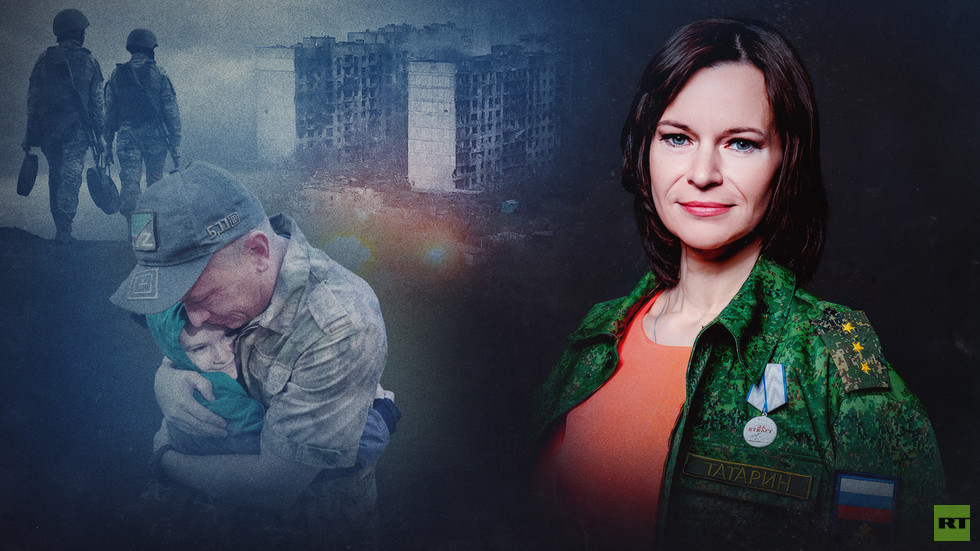
The spouse of a soldier from Moscow tells how she copes with separation from her husband, raises children and helps the front

© RT / RT
Almost 18 months ago, a partial military mobilization was announced in Russia. In September-October 2022, over 300,000 men were called up for service to protect Donbass and Russia’s new regions. According to President Vladimir Putin, 244,000 of them are still in the conflict zone, and 41,000 “have returned home for various reasons” including health and exceeding the age limit for serving in the armed forces.
At the end of December, Putin noted that the mobilized servicemen “fight very well”, and 14 have even received the Hero of Russia honorary title. However, the soldiers’ families often demonstrate real heroism as well. For the past one and a half years, they have had to live without their fathers and spouses. While their husbands serve in the army, Russian women raise children, solve everyday challenges, and support their husbands at the front. And of course, they can’t wait to see them back home.
RT spoke with Yulia Tishchenko, the wife of a Moscow resident who was mobilized into the armed forces. She told RT what it’s like to live away from her husband, about the problems she has encountered, and what helps her cope with the anxiety and fear for her family.
“We’re boarding a train, we’re going away”
RT: When and under what circumstances did your husband go to the front? How did you feel about his departure?
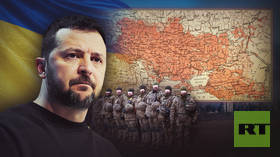

Read more
Yulia: When I learned that my husband was mobilized, like many women I was shocked and cried a lot. He was drafted in October 2022, during the partial mobilization. My husband remains in the area of the military operation to this day.
At first, he underwent military training not far from home. That was tolerable, at least we could visit him for half an hour on weekends, talk, and send him something. Frankly, at that time I felt a little better because once a week our children could see their dad and hug him.
But one day, my husband called and said: “We’re boarding a train, we’re going away” – and I had no idea where they were going. I was again in shock and incredibly nervous.
RT: What were the first months like after your husband left for the front? What everyday challenges did you face? How did you cope with your new responsibilities?
Yulia: It was incredibly difficult at first. I was in a state of panic. By that time, we had been married 10 years, and each of us had separate responsibilities at home.
When my husband was drafted into the army, I couldn’t even imagine that I would have to do traditional “men’s work” like fixing bathroom pipes, cabinet doors, etc. But then, like any Russian woman I pulled myself together. I had to become both mom and dad in the family – for the kids and around the house.
RT: Do you often have a chance to talk to your husband? How has your communication changed during this time?
Yulia: My husband calls whenever he can, but sometimes he disappears for certain periods of time. Sometimes, he passes small gifts – like chocolate or a bouquet of flowers – to us with the servicemen who come to Moscow on leave. These are incredibly touching moments – before going to the front, my husband was attentive, but not very romantic. Apparently, the fact that he can’t see us every day stirred up all these feelings in his soul.
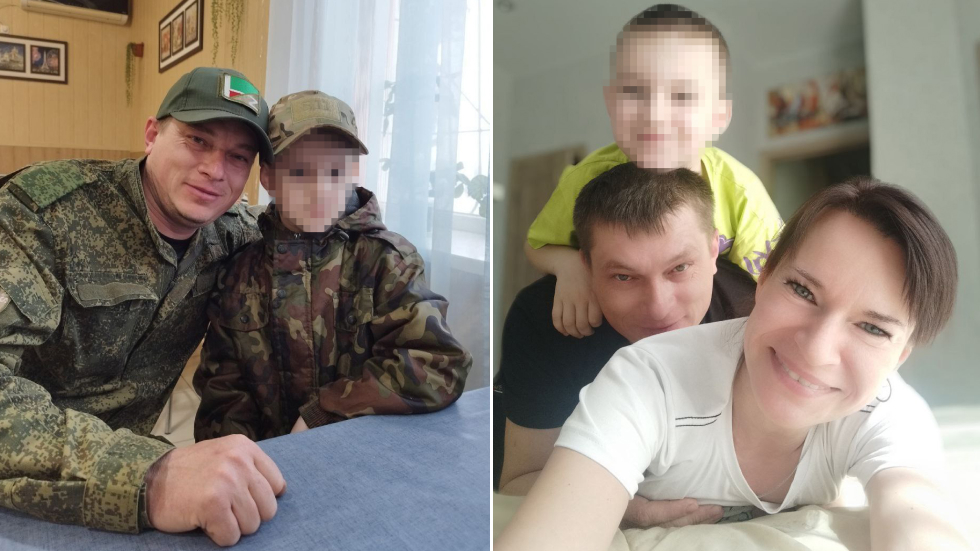

Six months after mobilization, Yulia and her children managed to visit her husband for a day © Yulia Tishchenko
“I wait until the kids go to sleep, and just cry in silence”
RT: How do your children feel about being away from their father? Do they miss their dad? How do you support them at this difficult time for your family?
Yulia: We have two kids, both of them boys. The eldest is 16, he attends a military cadet school, and the younger one is eight, he goes to elementary school. The kids miss their dad a lot, and sometimes they get depressed. It pains me to hear them crying at night. Sometimes, they just don’t want to do anything. At such times, I try to give them my undivided attention.
RT: And how do you deal with the stress? Do you get overwhelmed by emotions and fatigue sometimes? How do you support yourself?
Yulia: I try to be strong. I don’t want my kids to know how hard it is for me. They’ve already lost one parent in the sense that they are not able to see [their father] every day, and can’t ask him for help or advice. So I can’t afford to be weak in front of my children. Though sometimes, I get overwhelmed by intense emotions. I wait until the kids go to sleep, and just cry in silence.
RT: What helps you pull yourself together and support your family in the absence of your husband?
Yulia: I try not to sit without work. Work is a good distraction, it reduces anxiety. I organized a small volunteer group and started helping the regiment in which my husband serves. We help soldiers from different departments, depending on what they need. We collect money for the purchase of metal detectors, drones, and thermal imaging cameras.
We also try to help our servicemen in small ways, to make their life easier. For example, I make dry shower kits – sets consisting of a sponge soaked in a special solution and a small towel. When a few drops of water are applied to the sponge, it produces foam, so the servicemen can quickly wash and dry themselves with the towel. We also have a group of women who weave camouflage nets. Many wives of servicemen cope with stress like that – by devoting all their free time to helping the soldiers on the front line.
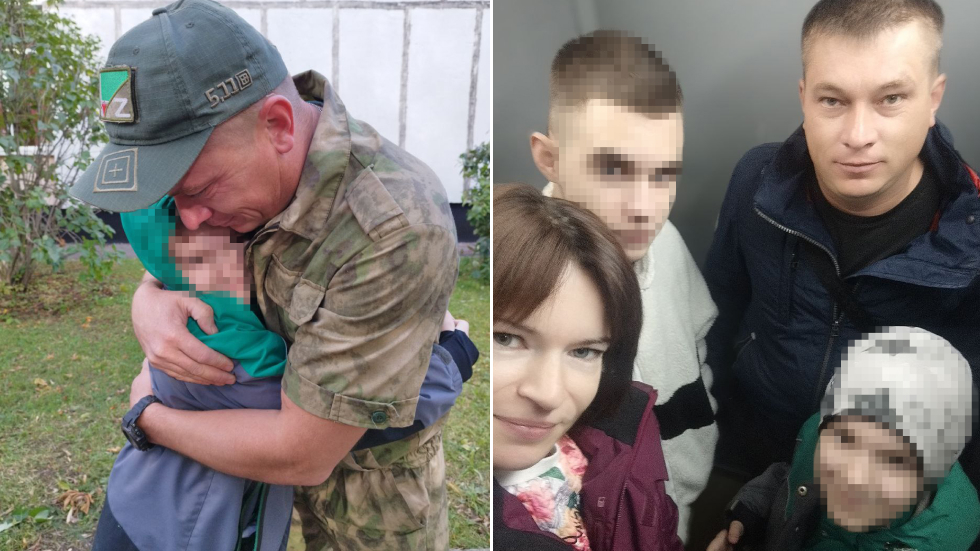

Exactly a year after mobilization, Yulia’s husband was released on leave for the first time. It coincided with the birthday of their youngest son © Yulia Tishchenko
“I have reached the acceptance stage”
RT: Are you afraid for your husband, your kids, yourself, for the future? How do you cope with it?
Yulia: The first six months after my husband was sent to the front, I was really afraid. Especially on those days when he didn’t communicate with me. The uncertainty was very tough.
Now, I’ve kind of reached the acceptance stage – I hope that God will protect my husband, and he will be fine. I hope that I will get my husband back, and the children will get their dad back, and that all this will one day end.
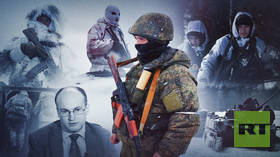

Read more
RT: Since your husband was drafted, you’ve had to take care of your family on your own. Could you describe your day?
Yulia: I have a standard work schedule, I work from Monday to Friday. What does my regular day look like? It starts at 6am – I get up, feed the cat, cook breakfast for the kids, pack them snacks for school, wake the boys up, feed them, wash the dishes, then the eldest boy goes to school, I walk his brother to school, and run off to work.
I work until 5pm with a lunch break. During lunch, I usually pick up some humanitarian aid for our servicemen. After picking up all these packages, I go to the delivery service to pick up more boxes with humanitarian aid. Then I pick up my youngest son from school, come home, sort out the packages, and cook dinner. Then I do the laundry, the kids do their homework, and I put them to bed.
After my sons go to bed, I stay up until about midnight making dry shower kits for our soldiers. Now, ahead of February 23 [Defender of the Fatherland Day in Russia] I am also preparing small gifts for the servicemen. These are mere trifles, nothing special: a pack of cigarettes, a lighter, wet wipes, a toothbrush and toothpaste. Probably, in regular life such a “gift set” would look strange, but on the front line, it always comes in handy.
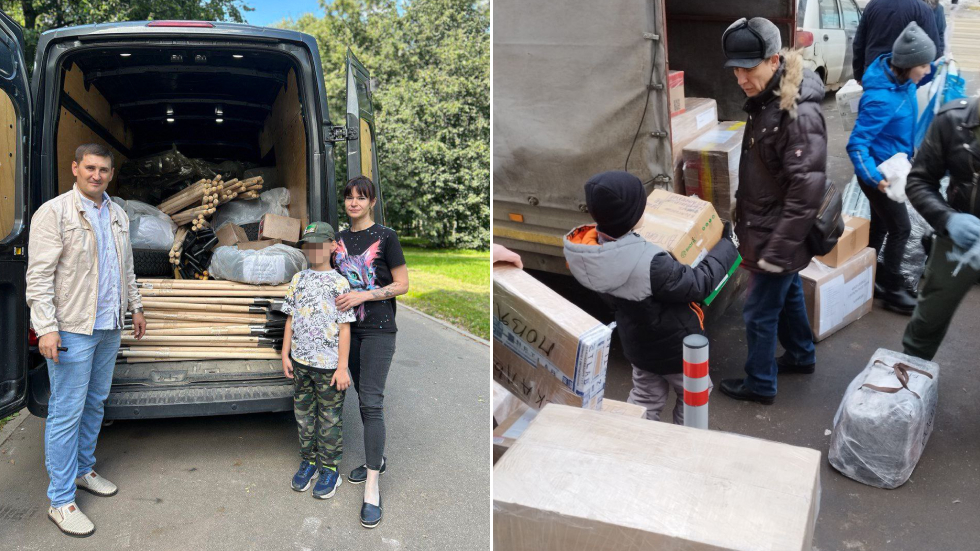

The youngest son of the Tishchenko family constantly spends time with his mother and actively helps her collect humanitarian aid for the front © Yulia Tishchenko
RT: Do the kids help with preparing gifts for the soldiers?
Yulia: Sure. The kids make greeting cards. At my younger son’s school, the kids made heart-shaped lucky charms. Soon, we’ll pick them up and send them to the guys at the front. It may seem like a trifle, but it’s really important for the servicemen to know that they are not alone, that people remember them and care about them, and that we’re expecting all of them to come home safe and sound.
“Staying constantly busy helps me cope”
RT: I am sure there are certain triggers that give rise to painful memories of how life used to be before your husband left for the front. How do you deal with your emotions when this happens?
Yulia: Sometimes, I feel like I’m experiencing deja vu. Sometimes it’s some little thing or detail – like I see a car on the street and suddenly remember that my husband and I had once wanted to buy a car like that. I remember how we selected [the model], asked people for advice, how happy we were to buy it…


Read more
This feeling can also come up when I meet families with children on the street. For example, I see how a father picks his child up in his arms – and right away, I remember how a few years ago my husband played with his son the same way.
I try not to think about the bad things – you know, some people believe in the materialization of thoughts. So I only think about the good things, and try not to feel depressed in any case. That’s really hard – but what else can I do?
RT: What prevents you from giving up, and encourages you to keep moving forward?
Yulia: Sometimes, I go to church, pray for the health of my family, light a candle, and request prayers for the servicemen. Faith helps.
But mostly, staying constantly busy helps me cope. An active workday and chores in the evening and at night exhaust me so much that there is no time to think about the bad things – all I think about is how else I can help our soldiers. And with these positive thoughts in mind, I drop off to sleep until the alarm clock wakes me up.
RT: Do you have any dreams, plans, or hopes for the future?
Yulia: My husband had always wanted to build a house. So despite the fact that I now have to deal with all the challenges on my own, I try to save some money for the house. My husband doesn’t know about it, but I have a special box labeled “House”, and I put my savings there. Hopefully, when the conflict ends, I will be able to give this box to my husband, so his dream can come true.
By Elena Terekhova, a Russian investigative journalist focused on social issues